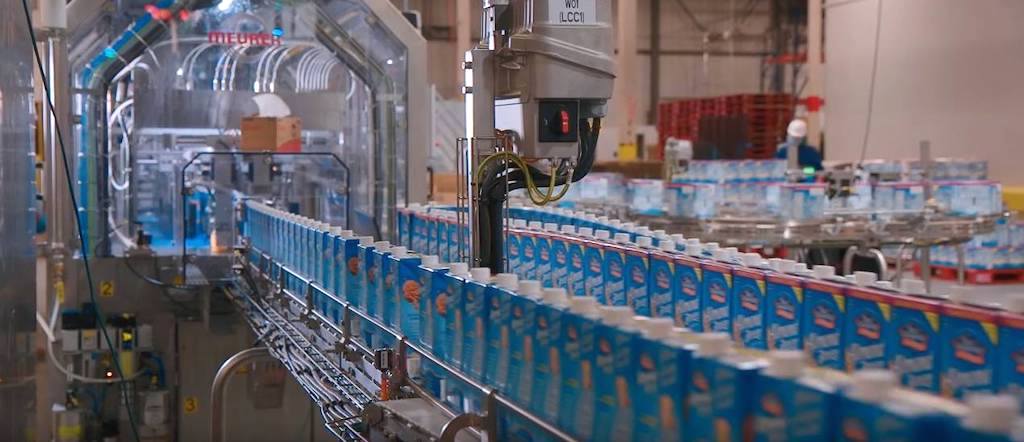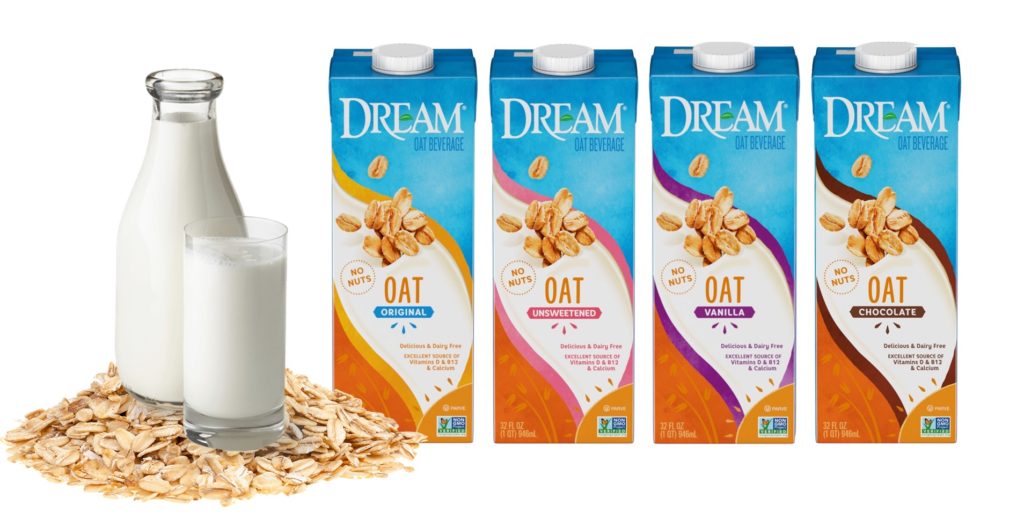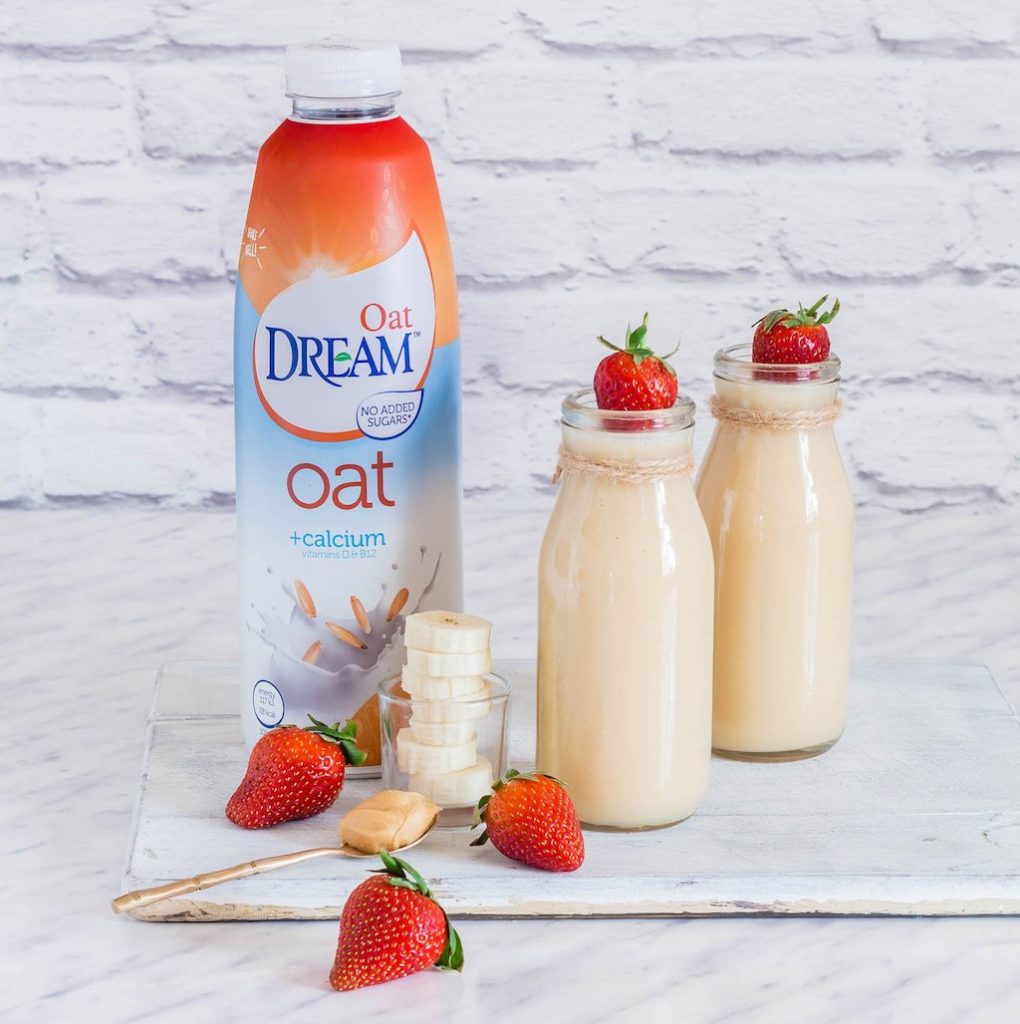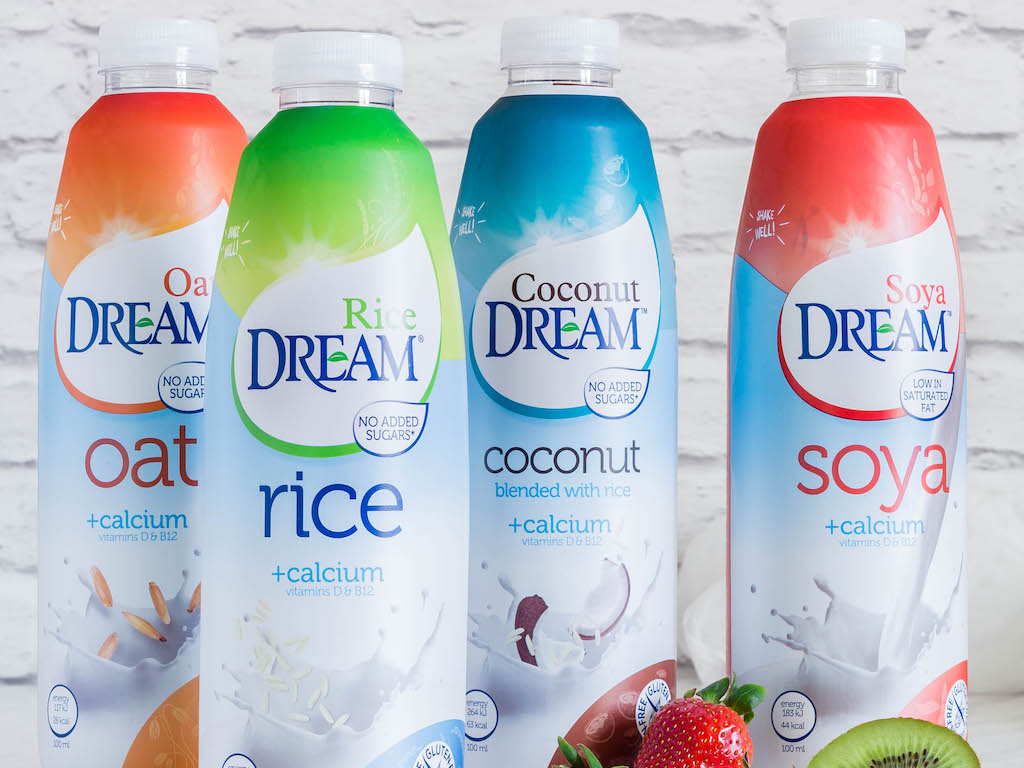SunOpta Expands Plant-Based Milk Portfolio & Production To Meet Dairy-Free Demand Boom
5 Mins Read
SunOpta, the North American plant-based and fruit beverage manufacturing giant, is quickly expanding its capacity and portfolio of vegan milk brands to keep up with consumer demand. Now doubling down on oat milk, a category recording triple-digit growth rates, as well as other non-dairy products like yoghurt and ice cream, the firm is expecting the rest of 2021 to be a story of “execution and accelerating growth.”
In February, SunOpta ramped up its production capacity in its beverage plant in Allentown, Pennsylvania, which followed its three major projects completed in late 2020, which extended its plant-based extraction facilities. This month, SunOpta revealed that it has acquired Dream and WestSoy from the Hain Celestial Group – two of the largest and established brands in the shelf-stable plant-based dairy space – in a deal totalling US$33 million.
While Dream, famous for its rice-based and almond-based milks, has been a pioneering label in the industry since 1982, WestSoy stands as the only branded shelf-stable soy beverage that bears USDA organic certification.
Joe Ennen, SunOpta’s CEO, said that the acquisition is part of the company’s strong push to lead in the fast-growing alternative dairy sector, and described it as “very consistent with our previously stated objective of pursuing strong organic and inorganic growth in our plant-based business.”

Over 75% of [our] profit, is in the plant-based food and beverage business.
John Ennen, CEO, SunOpta
It also made sense for the firm, given that it already manufactures around 50% of Dream’s line-up and 100% of WestSoy’s range.
“Since SunOpta has been manufacturing these brands for years, when this opportunity presented itself it was an obvious fit for us to own these brands,” explained Ennen.
These investments in its supply chain and brand portfolio are all core to Ennen’s target to double SunOpta’s plant-based sales within five years. Over 2020, the company’s plant-based channel grew 15% year-on-year to reach US$415 million, outpacing its fruit beverage unit, which drew in US$375 million in 2020.
Speaking to Food Business News, the CEO revealed that the “main part of the company, over 75% of its profit, is in the plant-based food and beverage business,” where the firm co-manufactures and packs branded products for its clients, among them coffee giant Starbucks.

A priority focus now is oat milk…That’s a category growing well north of 100%.
John Ennen, CEO, SunOpta
“We manufacture for many leading national brands that are on the shelf. We make everything from almond milk, coconut milk, soy milk and a priority focus now is oat milk.”
SunOpta first took a dive into oat milk back in 2019, when the beverage was rapidly picking up speed in the European market.
“It turned out to be a fortuitous investment. That’s a category growing well north of 100%,” Ennen told FBN. “I saw the opportunity to be a leader in non-nut-based milks. Think about all plant-based milks and non-nut-based [milks] is small.”
While soy-based milks remain an option for consumers looking for non-nut-based dairy alternatives, Ennen noted that they “never really rebounded” after losing its popularity with customers in the 2000s.
Now, there’s oat milk, which has within a short span of time grown to become the second-biggest segment within plant-based milk – already ahead of soy milk sales.

According to SPINS data, sales across the entire oat milk category has risen an astounding 294% in enhanced retail channels and 345% in mainstream retailers over the past year. Oatly is perhaps the most famous player in the category of all and is dominating the oat milk market, though many more brands are now joining the competition – including Dream.
SunOpta doesn’t just want to produce oat milks, but an entire range of oat-based plant-based alternatives, from yoghurt to cheese, ice creams, creamers and more. These categories remain largely an untapped opportunity, with fewer options available but strong and fast-growing demand.
We are launching oat milk in all different forms and functions. We are providing the raw materials [to clients] to launch oat milk ice cream, oat milk yogurt and even working on oat milk beer.
John Ennen, CEO, SunOpta
The latest statistics from the Plant Based Foods Association (PBFA) and Good Food Institute (GFI) show that dairy-free yoghurt, butter and cheese categories are together reaching around US$2 billion in value in 2020, a sector not to be dismissed in the broader US$7 billion plant-based food retail market.

Plant-based yoghurt in particular grew at 7-times the rate of its conventional dairy-based counterparts, while vegan cheese recorded a strong 42% increase in sales over the year. What’s clear is that all alternative dairy products are forecasted to see strong demand, especially as Covid-19 continues to propel the long-term shift that consumers were already making away from traditional dairy.
“We are launching oat milk in all different forms and functions. We are providing the raw materials [to clients] to launch oat milk ice cream, oat milk yogurt and even working on oat milk beer. We’re just seeing a lot of interest there,” explained Ennen.
For SunOpta, all the pieces in its expansion plan are set in place.
“We think we have our strategies dialed in. We are accelerating and playing offense. We’ve done the hard work of prioritising the portfolio,” said the CEO. “Now we need to focus on our growth strategies. 2021 is about execution and accelerating growth.”
Lead image courtesy of Dream.




